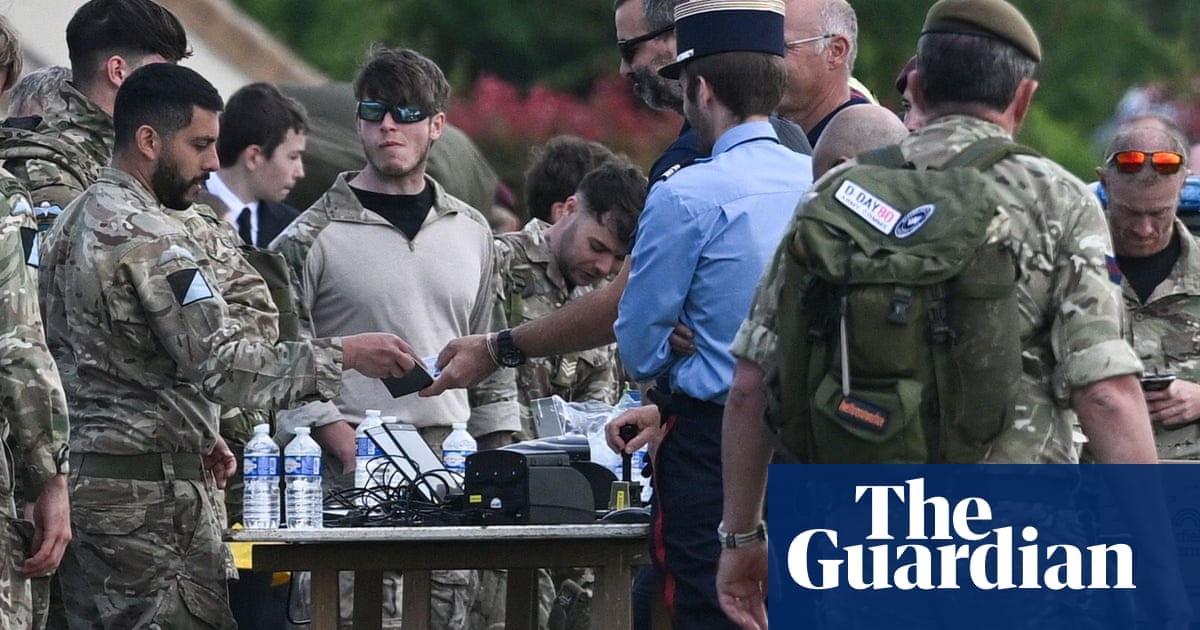British paratroopers dropping in French field for D-day event asked for passports

- by Admin
- June 6, 2024

Eyebrows were raised at the Ministry of Defence when French immigration and customs insisted on checking the paperwork of 400 British paratroopers immediately after they dropped into fields near Saneville, Normandy on Wednesday.
Some felt the French were trying to make a point in response to the UK’s decision to leave the EU and, while immigration checks for British troops on exercise abroad are routine, doing so at a public commemoration is deemed exceptional.
US and Belgian troops involved in the drop were not checked, part of an international commemoration of one of the earliest operations of D-day. The US forces flew from France and had already completed their border formalities; no check was required for the Belgians as EU citizens.
Passport checks were required between Britain and France before Brexit, but since the UK left the EU officials stamp passports on entry to the 27-country bloc.
Though the drop and the event happened 24 hours ago, film of the French officials greeting the British soldiers was picked up online on Thursday. Brig Mark Berry, the commander of 16 Air Assault Brigade, told the Sun: “It is something we haven’t experienced before.”
French immigration officials said checking papers in the field was exceptional given the significance of the event, part of the celebrations of the 80th anniversary of the invasion of Normandy on D-day in 1944. Jonathan Monti, an immigration official, said: “We are welcoming the UK soldiers.”
Film showed the checks were brief, while crowds of spectators cheered and praised those undertaking the airdrop.
Eighty years ago, more than 18,000 men of the US 82nd and 101st Airborne Divisions and the British 6th Airborne Division were dropped into Normandy shortly after midnight to secure critical points and areas behind the five invasion beaches. It was a risky exercise and many soldiers were killed on landing, having come down unsafely or into enemy gunfire – as at the village of Sainte-Mère-Église.
The Latest News
-
December 23, 2024Daily horoscope: December 23, 2024 astrological predictions for your star sign
-
December 23, 2024Sharp fall in UK business activity forecast as economic gloom deepens
-
December 22, 2024Foxtel offloaded to UK streamer for $3.5b
-
December 22, 2024Elon Musk’s British cousin reveals how brutally world’s richest man snubbed him: ‘I’m shocked that…’
-
December 22, 2024‘Labour will torpedo my firm’: One of Britain’s OLDEST family businesses says inheritance tax plans could destroy his finances in ‘blink of an eye’ after 250 years of trading





